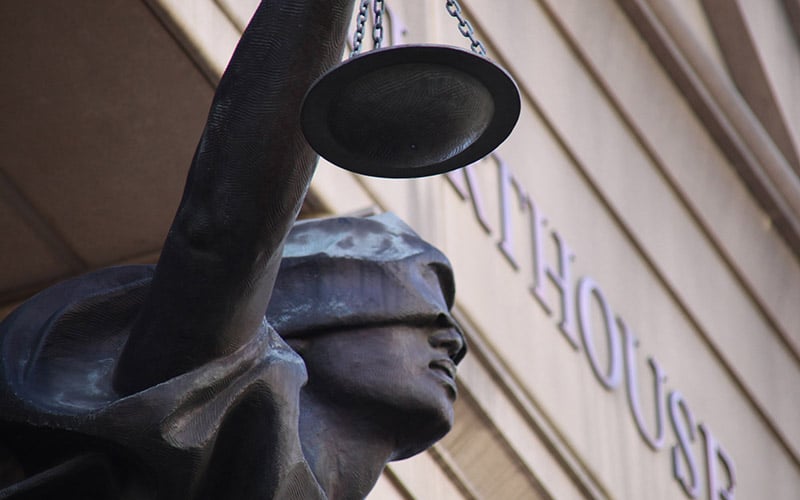WASHINGTON – A federal appeals court Monday upheld a Tucson man’s sentence for possession of 24 homemade bombs that were found in his house in 2011.
Todd Fries had argued that the sentencing judge should not have considered his previous convictions on chemical weapons use and making false statements to the FBI when she sentenced him to five years for the bomb conviction.
But a three-judge panel of the 9th U.S. Circuit Court of Appeals disagreed, noting that it was Fries who had argued to separate the chemical weapons and bomb charges in the first place.
“Accordingly, Fries’ contention that he was punished for successfully severing the unrelated counts is unpersuasive,” Circuit Judge Johnnie Rawlinson wrote in the opinion for the court.
Fries’ attorney, Richard Bock, was not immediately available for comment Monday. A spokesman for the U.S. Attorney’s Office in Arizona said prosecutors would not comment on the ruling.
Fries, who was also known as Todd Burns, was indicted in June 2012 in connection with the August 2009 use of a homemade chemical device against former customers of his business, and the May 2011 discovery of the explosive devices at his home.
The 2009 attack, which left animal carcasses at the customers’ home and a burning bucket of chemicals in their driveway, resulted in a 1,000-foot-high chlorine cloud that forced the evacuation of an entire neighborhood.
The 2011 discovery included 24 apparently homemade cylindrical or spherical devices “containing low-explosive main charge” with “copper-plated metal balls for use as an added fragmentation enhancement” on at least some of the devices.
A magistrate judge agreed with Fries’ argument that the charges should be tried separately, since they were separated by several years and did not appear to be related.
The magistrate said the 2009 attack “was created to seek revenge against a specific set of victims for a specific reason,” according to the appellate decision, while prosecutors had “not alleged a victim nor a motive for the creation of the explosive devices discovered in August 2011.”
“There is no allegation that the explosive devices were made contemporaneously to the chemical cloud,” the opinion quoted the magistrate as saying.
Fries was convicted by a jury in the 2009 incident on charges of chemical weapons and making a false statement to the FBI. He was sentenced to 12 years and seven months on the chemical weapons charge and five years, to be served concurrently, in the false statement charge.
He was then convicted at a separate trial on charges of “possession of unregistered destructive devices.” The recommended sentence on those charges was increased because of his prior convictions from the 2009 incident, and Fries was sentenced to 60 months, with 20 of those months to be served after his other sentence.
Fries appealed, arguing that prior convictions should not have been included when determining his sentence.
But the appeals court disagreed, noting that even though the charges were made in the same indictment, they were clearly separate incidents.
“It is evident from the indictment and the record that Fries’ offenses were not related, as they occurred on separate occasions, were not part of a common scheme, were not consolidated, and the earlier offenses involved conduct that was not ‘part of the instant offense,'” Rawlinson wrote.
The appeals court said the district court did not err and the judge there “imposed a reasonable sentence of 60 months imprisonment with 20 months running consecutively to Fries’ prior sentence.”
